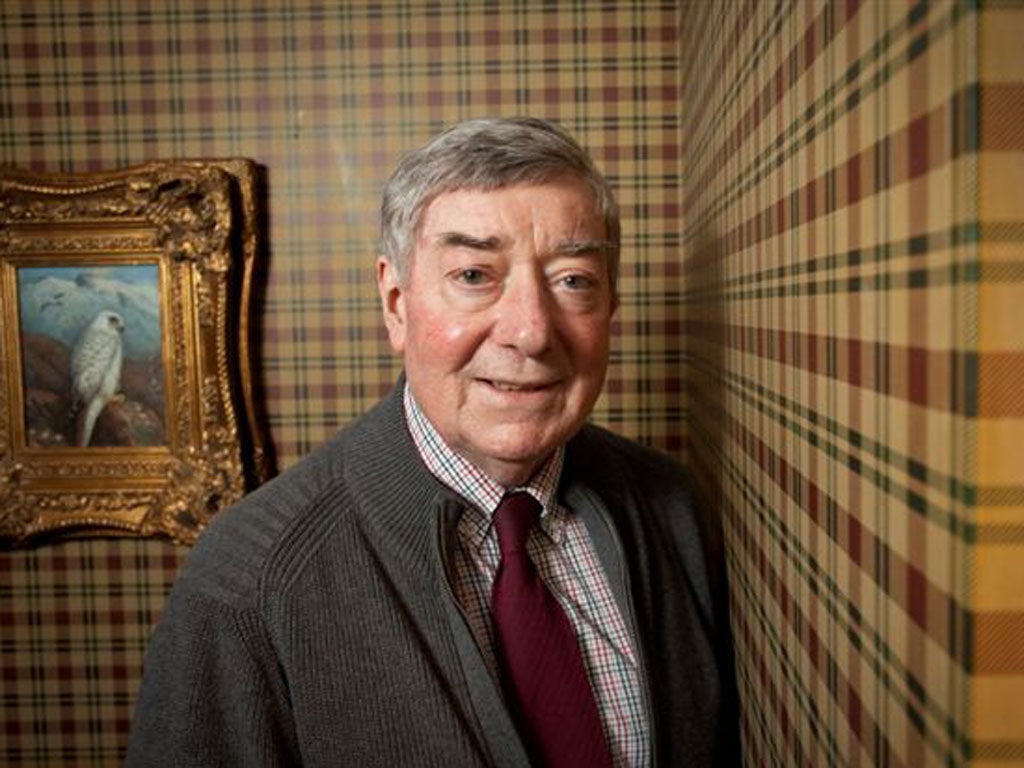Campbell Christie: Union leader who championed Scots devolution

Your support helps us to tell the story
From reproductive rights to climate change to Big Tech, The Independent is on the ground when the story is developing. Whether it's investigating the financials of Elon Musk's pro-Trump PAC or producing our latest documentary, 'The A Word', which shines a light on the American women fighting for reproductive rights, we know how important it is to parse out the facts from the messaging.
At such a critical moment in US history, we need reporters on the ground. Your donation allows us to keep sending journalists to speak to both sides of the story.
The Independent is trusted by Americans across the entire political spectrum. And unlike many other quality news outlets, we choose not to lock Americans out of our reporting and analysis with paywalls. We believe quality journalism should be available to everyone, paid for by those who can afford it.
Your support makes all the difference.One of the towering figures of the Scottish trade union movement and of Scottish public services, Campbell Christie led the fight in Scotland against Margaret Thatcher's Conservative government as she introduced policies which eventually resulted in the vote for devolution. It was a cause in which he fiercely believed and which he would play a major role in delivering.
Christie, general secretary of the Scottish TUC from 1986-98, galvanised opposition to the Poll Tax introduced by Thatcher in Scotland, which broke the Act of Union and which resulted in many who had voted against devolution in 1979, voting for change in 1997. As the Labour Party split amid the rancour of the years following the 1979 election defeat, Christie emerged as one of the most dominant figures in Scottish politics, leading the fight against cuts and policies which would see the end of much of Scottish industry and revenues from North Sea oil diverted south.
"Campbell was a towering figure in the Scottish Labour movement, the TUC general secretary Brendan Barber said. "He gave powerful leadership to the STUC during his period as General Secretary as a passionate advocate for social justice. But he also played a critical role too in building broader political and civil support for devolution."
Born in 1937 in Carsluith, Galloway, Christie was the son of a granite blaster who was to die of an industry-related illness. The family moved to Glasgow when he was 12. He moved south in 1954 to join the Civil Service as a clerical officer for the Admiralty in Woolwich, where he also attended the local polytechnic. With a break for National Service, spent in the navy at Portsmouth, he spent the next 18 years in public service, returning to Scotland to work for the DHSS. A member of the Labour Party, he had joined the Civil Service Clerical Association (eventually the Society of Civil and Public Servants), and with his brother Leslie rose through its ranks. Both became full-time officials, with Christie returning to England. He was deputy general secretary from 1975 to 1985, playing a prominent part in the Civil Service dispute of 1981 which led to the banning of unions at GCHQ.
The brothers established reputations as leaders of a left-wing group of young officials, with Campbell becoming the Broad Left's principal union strategist. He returned to his own country, becoming Scottish TUC general secretary in 1986. He quickly established a reputation for his organisational skills which enabled him to bring together disparate groups to oppose Conservative measures in Scotland. His campaigns to fight the closure of the Ravenscraig steelworks and against the poll tax brought the STUC to the forefront of opposition to the government and laid the basis for a new approach to Scottish politics. As a member of the EU Economic and Social Committee from 1975 to 1985, his contact with European trade unionists and politicians had given him the opportunity to study and adopt some of the realistic policies and compromises that would help to forge a more bipartisan approach towards devolution.
In 1988, he was instrumental, along with other prominent Scots concerned at the way in which Scotland was governed, in producing a report, A Claim of Right for Scotland aiming to establish a Scottish Constitutional Convention which would draw up a scheme for a Scottish Assembly or Parliament. Christie, often criticised by his own side, drew together groups from politics, the churches and other organisations.
Not all Labour politicians were pro-devolution. "Campbell and I were vehemently opposed on the issue of devolution," said Tam Dalyell, "but it says a lot for his generosity of spirit that this did not interfere with personal friendship." Christie succeeded Dalyell as president of the Scottish Council for Development and Industry. He retired in 1998 with legislation underway to introduce a Scottish parliament; he held office in various public bodies and recently led the Christie Commission into public sector reform. Alec Salmond, Scotland's First Minister, said: "Scotland has lost a giant of the trade union movement and public life."
Football was one of Christie's great loves and he became chairman of Falkirk FC, who held a minute's silence for him before last Saturday's match.
Campbell Christie, trade unionist and public servant: born Carsluith, Galloway 23 August 1937; CBE 1997; married 1962 Elizabeth Cameron (one son, and one son deceased); died Denny, Falkirk 28 October 2011.
Join our commenting forum
Join thought-provoking conversations, follow other Independent readers and see their replies
Comments